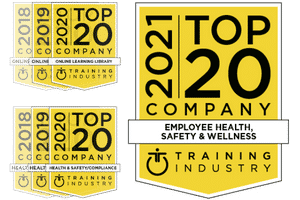
When preparing to train your employees, you likely consider which “hard skills” would be needed for each job, such as forklift training or oil rig safety. While these are crucial for the job at hand, and for your employees and the company to meet regulatory compliance, there is an entirely different set of skills that create fully trained, well-rounded employees: Soft skills.
Employers often overlook the inclusion of soft skills in a training curriculum because they don’t seem to directly correlate with company performance or contribute to the bottom line. However, this is an inaccurate assumption. A study by researchers at Harvard University, Boston University and the University of Michigan’s Ross School of Business found that employees who received training on a variety of soft skills, including communication, time management and problem solving, helped grow productivity by 12%. Almost one year following training, the company’s return on investment was up 256%.

As an example of poor soft skills affecting productivity, let’s say you have an employee with all the right technical skills for the job but weak time-management skills. This employee will likely have problems getting work done on time and may not be able to handle multiple projects. The work may fall behind or be incomplete, which could cause frustration among coworkers and managers.
If your company offered time-management training, this employee would have received tips and techniques on how to prioritize work, making for an effective employee, happier management and an overall more productive company.
The importance of soft skills is not a new discovery. A 1918 study on engineering education determined roughly 80% of long-term success comes from well-developed soft and people skills. Recent research has found similar results as well, determining that 75-85% of success can be attributed to soft skills, further confirming the importance of this often-overlooked training.
Despite the proven need for holistic training, 72% of respondents to a Udemy for Business study admitted their company provides training solely for the skills directly related to an employee’s role.
While hard skills only apply to specific job functions, soft skills apply to all employees at any level. In fact, according to LinkedIn’s 2019 Global Talent Trends, 92% of hiring professionals say soft skills matter as much as or more than hard skills.
What soft skills should you be training your employees on?
Soft Skills List
Some of the most in-demand soft skills include:
- Time management
- Communication
- Conflict resolution
- Problem solving
- Positive attitude
Looking for more online safety training content?
VIEW THE 800+ COURSES AVAILABLE!
There are a wide variety of other soft skills that can be useful, but these skills are universal and can help boost individual, team and company-wide performance.
Time Management

It likely goes without saying that time management is a crucial skill every employee should learn. Perhaps more than any other soft skill, this is one that can most directly affect a company’s bottom line. If workers cannot manage their own time well, they will likely be unproductive and waste the company’s time and resources.
Online training can introduce methods for setting priorities, minimizing distractions and staying on task. From entry-level positions to the CEO, time-management skills are essential for a successful workforce.
Communication
Strong communication skills are important both on and off the job. Think about all the interactions you have each day, from grabbing a morning coffee to meeting with clients or going out to eat. Speaking, body language and active listening are crucial for these encounters, but don’t forget about electronic communication as well, which is becoming increasingly common, even for formal communication.
Online training helps employees learn through interactive examples of both good and bad communication and teaches them to be aware of how they can effectively communicate in a variety of situations, whether in person, over the phone or digitally.
Conflict Resolution
It is easy to assume that conflict resolution is a skill only managers need, but any proactive employee should look to have strong conflict resolution skills. After all, it is unlikely that an employee will never be involved in some type of conflict.
Employees who are able to recognize and resolve conflicts themselves can save managers, and the company, time and potentially money. Online training makes it easy for employees to understand the different bargaining styles and learn how to approach negotiation within the workplace.
Problem Solving

Similar to time management, employees at any level should be able to demonstrate problem-solving skills. While some people are inherently good at creative thinking and others excel at critical thinking, problem-solving skills can be cultivated no matter what.
The basic tenets of problem solving are being able to assess a situation and find a solution. Utilizing online training can help your employees identify ways to approach various problems, whether through creative or critical thinking, and develop a well-thought-out solution.
Positive Attitude

You may consider positivity as relevant only to public-facing employees, such as those in customer service or hospitality roles, but positive attitudes throughout the company help keep employee morale up and create a healthy working environment.
Through online soft skills training, your employees can learn easy ways of maintaining a positive attitude, which apply to interactions with managers, coworkers, subordinates and clients alike.
Oftentimes, employees are not offered any soft skills training and must take the initiative to find training independently. However, in a recent survey, 94% of employees said they would stay with an employer longer if the company invested in learning and development.
Including both hard skills and soft skills in your company’s training curriculum makes for well-rounded, satisfied employees, which leads to an efficient, productive company.
See how the holistic training approach utilized by SafetySkills can help your employees stay compliant with industry regulations, maintain your company’s internal standards and gain invaluable personal skills.


